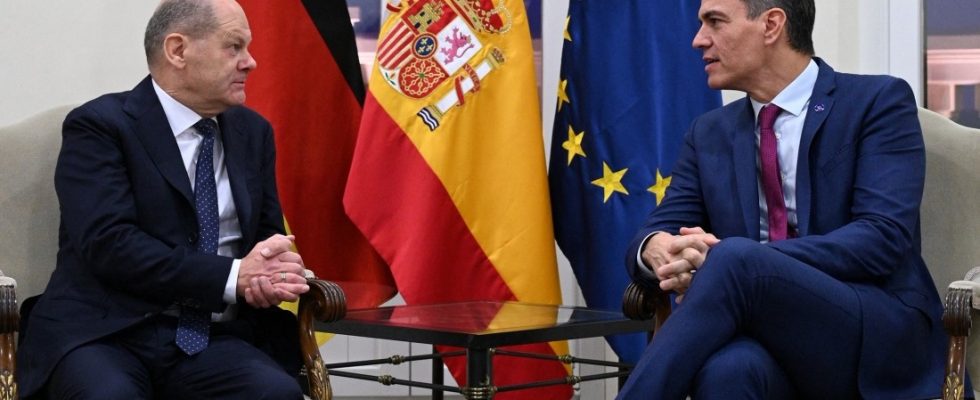Next week, the European Parliament will probably hold a major debate about the formation of a government in Spain. Manfred Weber, chairman of the European People’s Party, is pushing for the issue to be put on the agenda. He also calls for the European Commission to investigate the deal that socialist Pedro Sánchez made with Catalan separatist Carles Puigdemont. The question: Is Sánchez undermining the independence of the Spanish judiciary by granting impunity to separatists in order to secure his re-election?
It’s about European principles of the rule of law, which is why the institutions of the European Union will have no choice but to deal with the Spanish amnesty law at some point. Otherwise they would become unreliable in the cases of Poland and Hungary. But with a view to the European elections in June 2024, the topic is also about power in the European Union.
If the conservative Feijóo comes into office, it will change the balance of power in the EU
Alongside German Chancellor Olaf Scholz, Pedro Sánchez is the second pillar of European social democracy. With a share of the vote of 32 percent, he was one of the big winners of the 2019 European elections. If Sanchez’s deal with Puigdemont fails in parliament due to great public pressure – or even EU intervention – and his rival Alberto Núñez Feijóo ends up in office come, the Christian Democrats and Conservatives, together with Giorgia Meloni, would have more power in the allocation of top positions in the EU. This is what the Brussels simulation games look like, which is also why the debates are so heated right now.
“In Spain we see the beginning of the end of the rule of law and the collapse of the separation of powers,” Manfred Weber said on Monday. The EU institutions must intervene, he demanded. Social Democratic group leader Iratxe García Pérez counters that Weber simply does not want to accept the election defeat of his party colleague Feijóo. She defends her party colleague Sánchez vehemently – no wonder, after all, Sánchez brought her into office thanks to his negotiating power. This makes the attitude of EU Foreign Affairs Representative Josep Borrell all the more astonishing. Borrell also owes his job to Sánchez, and yet he said it loudly Politico on Monday in Brussels: He had concerns about this deal. Loyalty looks different.
The EU Commissioner for Justice, Didier Reynders, a Belgian liberal, sent a letter to the Spanish government last week. He expressed concerns about the deal between Sánchez and Puigdemont and demanded clarification. Sánchez coolly announced that the law was not a matter for the government, but for parliament. He was obviously of the opinion that the Commission had overstepped its authority.
In terms of content, it is generally understood that the Commission has little recourse against the amnesty. What seems problematic about the agreement between Sánchez and Puigdemont is less the impunity for the leaders of the attempted secession in 2017 – but rather the agreement to jointly investigate possible “lawfare” by the Spanish state in 2017. The term lawfare means the instrumentalization of the judiciary for political purposes. Puigdemont is apparently convinced that the Spanish government turned the judiciary on him at the time.
Sánchez hasn’t made many friends in Brussels recently
In fact, it would be reminiscent of the situation in Poland if the government wanted to reopen old court rulings and hold the judges responsible accountable. However, the aspect of “lawfare” does not appear in the current draft law, at least not explicitly. For political reasons alone, it is difficult to imagine that the Commission would seriously take on the Spanish government so shortly before the European elections or that, as some conservatives would like, Commission President Ursula von der Leyen would ask Pedro Sánchez to leave the amnesty law in place and instead to schedule a referendum.
However, Pedro Sánchez hasn’t made many friends in Brussels over the past few months. He has abused the Spanish Council Presidency several times for domestic political purposes. To serve Puigdemont, Sánchez tried to quickly get Catalan recognized as an official EU language. In addition, during the last summit in Brussels, he ignored the European language on the Middle East conflict and called on Israel to call for a ceasefire in the fight against Hamas. He obviously wanted to pacify his potential left-wing coalition partners at the expense of harmony in the EU.

